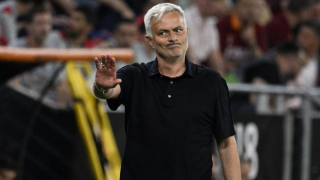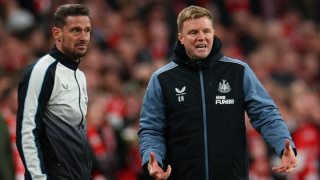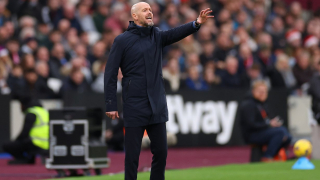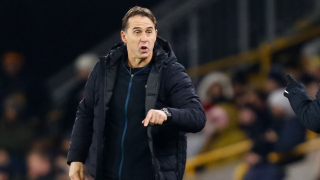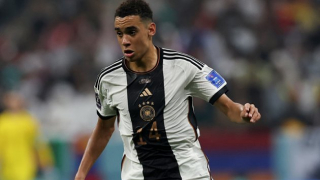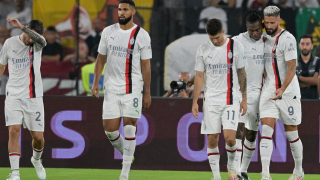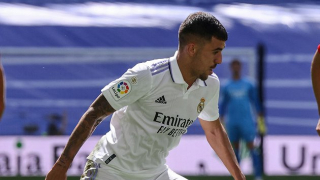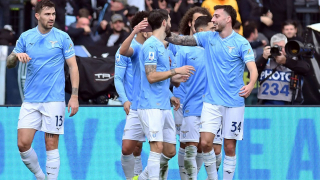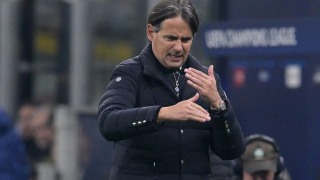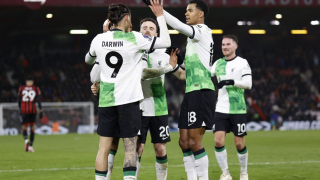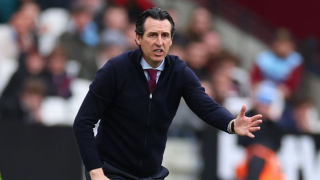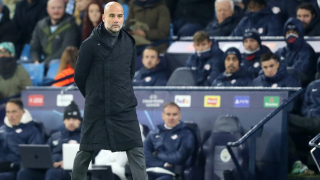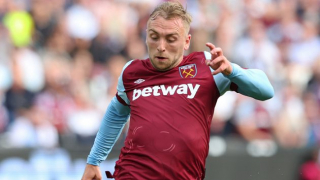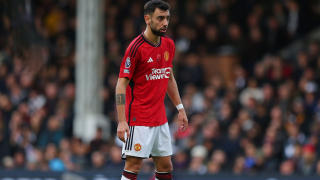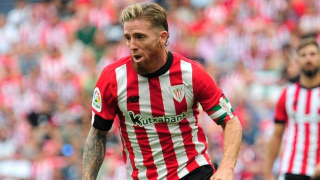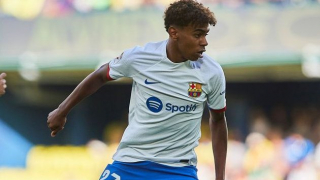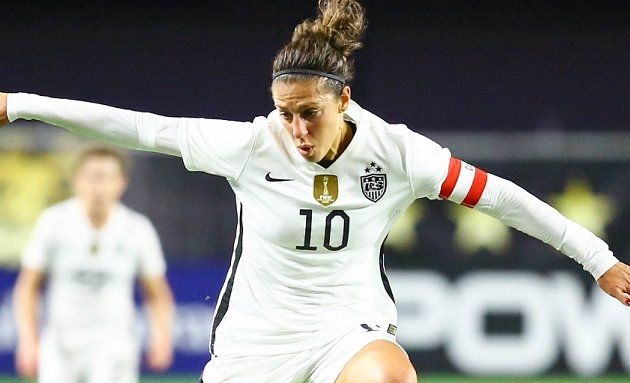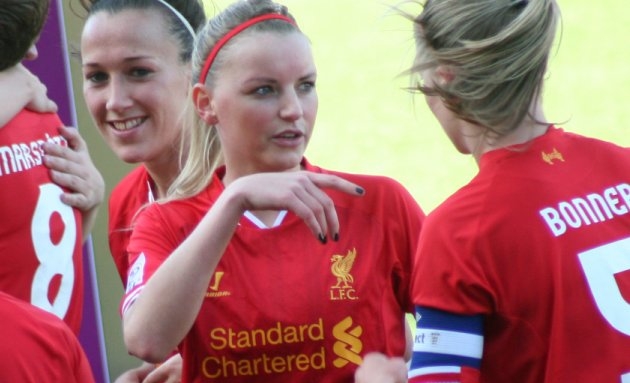This week we look at the ongoing dispute between the U.S. Women's National Team Player Union and the U.S. Soccer Federation, some player moves involving NWSL teams (2 involving players from England and Ireland) and the recent announcement of a high profile friendly match versus a team from Wales for the new summer amateur league (USW), that is attempting to make a spot in replacing the 21 year run of the W-League which folded late last year.
U.S. Women Escalate Their Contract Dispute with U.S. Soccer
The U.S. Women's National Team contract dispute with U.S. Soccer was escalated substantially when five veteran players filed a complaint with the Federal Equal Employment Opportunity Commission last week. Current FIFA World Player of the Year Carli Lloyd, Alex Morgan, Megan Rapinoe, Becky Sauerbrunn and Hope Solo have filed a joint petition—representing all of the national team members—stating that they are experiencing wage discrimination by U.S. Soccer compared to the men's national team members, citing bonus payments that are much lower than the men's total. The women each receive $3,600 for each national team appearance versus $5,000 for the men, with a win bonus for the women of $1,350 versus $8,166 for the men. The men do receive bonuses for ties and losses, while the women's team does not, though grant it they typically do win most of their friendly matches. For making the final roster for the 2015 Women's World Cup in Canada, each player received $15,000, compared to $55,000 for the men at the 2014 World Cup in Brazil. In addition, their player share from the 2015 WWC was $2,000,000 for winning the title, while the men shared $9,000,000 for advancing to the round of 16 in Brazil in 2014—figures that ultimately FIFA has primary responsibility for. (The women typically fly economy class for their travel while the men fly in business class. This issue was brought to a head when the reigning Women's World Cup Champions Japan flew in coach to the London Olympics while the men's team flew in business class—on the same flight. The Japanese federation said that it was because the men were professional players; an excuse that U.S. Soccer really can't use.) U.S. Soccer has maintained for years that the men's national team has been profitable and essentially been funding their other programs (women, youth, futsal, beach soccer, etc.). The women's program has for decades been operating at a loss. This has changed of late, particularly with the strong post-World Cup Victory Tour crowds (20,000-35,000 in most venues) and high viewership ratings during last summer's Women's World Cup win. The player's EEOC complaint states that the women exceeded revenue projections by as much as $16 million in 2015. Carli Lloyd explained the player's side on national television: “I think the timing is right. I think we've proven our worth over the years. Just coming off a World Cup win, the pay disparity between the men and women is just too large. We want to continue to fight. The generation of players before us fought. And now it's our job to keep on fighting." The federation responded in a press release that they have been: “a world leader in promoting the women's game," such as petitioning strongly for women's soccer to make its debut in the 1996 Atlanta Olympics, lobbying FIFA for prize money for Women's World Cup teams and launching NWSL in 2013. The federation also insists that the American women are treated much better and have higher salaries than any other football federation's female athletes in the world, and though true, this issue is about equal pay at home. The federation is facing an uphill battle in winning the public relations battle as the media and general public support are firmly on the side of the popular women's team players, who are seen by many as leaders in the fight for equality for women in all sports. It doesn't help U.S. Soccer's case that the United States Tennis Association established an equal payment system at the U.S. Open for men and women in 1973.
A key element in the dispute is that the women are full-time employees of U.S. Soccer, playing in the federation-run NWSL as well, while the men are employed by their Major League Soccer or overseas clubs, so the wage disparity issue is focused only on national team event bonuses. The top women national team players do earn around $70,000 in base salary from U.S. Soccer. MLS is independently run, though U.S. Soccer was instrumental in starting it in 1996, as a condition by FIFA for hosting the 1994 World Cup, as there had not been a full professional league in North America since the original North American Soccer League folded after the 1984 season. If a new collective bargaining agreement between the two sides is not completed by 2017, it could affect national team friendlies and even the federation-owned NWSL, though the next key event is a ways off, with Women's World Cup qualifying in the second half of 2018. The bid for equal pay is an important step for the U.S. Women, but it probably ultimately affects only the national team players, of which there are few changes every year because of the nature of these full-time contracts, unlike other countries that can change their roster every game if they so desire.
Looking at the professional loop, players' salaries in NWSL can range from about $7,000 to $38,000 for a season, which is typically 5-6 months. The team salary cap is reportedly $265,000 in 2015, or an average of $13,250 for 20 players. It is increased by 5% in 2016 to $278,000 but the national team players of Canada and the U.S. are paid by the federations and are not included in that cap figure. and some international imports earn far more than that. The minimum salary last year of $6,842 is well below the federal annual poverty line of $11,770 and is about 10% of MLS's minimum average salary of $60,000. NWSL is increasing the minimum salary for 2016 by 5% to $7,200. The league maximum salary was also raised from $37,800 in 2015 to $39,700 in 2016 (again a 5% increase). Top tier U.S. internationals like Hope Solo and Carli Lloyd earn $54,000 for playing in NWSL in addition to their base pay of $72,000 for the national team. Of course MLS lags the other four major league sports for men: National Basketball Association, National Football League, Major League Baseball and National Hockey League, which all have a minimum annual salaries hovering around $500,000.
Long-time American pro forward Ella Masar had decided to retire after last season from the Houston Dash. Then she had an opportunity to join her partner—Canadian international goalkeeper Erin McLeod—with FC Rosengard of Sweden and she played in both rounds of the UEFA Champions League quarterfinals over the past few weeks. Houston could have offered her a new contract and prevented her move but were class acts and did not do that. Then, Masar had to clear waivers (the opportunity for any club to sign her before she became an unrestricted free agent). Masar explained the process: “The trick is once Houston declared me off the list, other teams could have picked me up. We had a couple of calls of other teams inquiring, 'Are you sure you want to go, are you sure you want to head over?', but thankfully I had enough respect from the coaches that they understand the situation and let me go." Masar, who played in Norway and for a season with PSG, scoring 6 goals in 17 games in 2011-12, scored 8 goals in 57 matches in three NWSL seasons with Chicago and Houston and 12 goals in 54 matches with Chicago and magicJack in WPS; she was an active wing back who can also play up top. She admitted that part of her reasoning to initially retire was also financial. She talked about the difference in compensation between NWSL and European clubs: “It also comes to you get paid six months or you get paid year round. I mean, that's a huge change as well." Masar would like to see NWSL develop into more of a full-time situation for the players: “I think if somebody can start some type of structure where the girls don't have to go home and have a different chapter of their life for six months, then they can actually train like a pro and actually have a financial income that makes it doable for them." Currently, many players can't save for the off-season: “You can't pay for housing when you get $1,500 per month and you pay for housing and a car, and you're supposed to pay for food, and then you can't even save for the off-season so you have to do what you need to do. Whether it is housing that is covered in-season, so you can have an out-of-season budget, that would be a huge – a lot of teams do have that, Kansas City has that. I had an option to have housing this year or go live with a host family, and I wasn't going to live with a host family at 29 years old." Some of the back-up players on some teams will still be sharing rooms with host families or even living at home (which was common with the Red Stars in both WPS and NWSL).
As the women's national team player union negotiates a new contract with U.S. Soccer, we wonder what the trickle-down effect will be for NWSL, for salaries and benefits for the non-national team players in particular. Will any gains by the Players' Union affect the league in general or just the top players? Stay tuned but chances are that non-national team players will still be sharing rooms and struggling to make ends meet as professional players in the future.
Jodie Taylor Moves to Arsenal; Denise O'Sullivan Joins Houston Dash
Jodie Taylor has left the Portland Thorns after two years in NWSL (the first with Washington Spirit) to join Arsenal Ladies for the 2016 Women's Super League season. The experienced Taylor (29), who scored against Canada in the World Cup quarterfinal against host Canada last summer, has scored goals for teams in the U.S., Canada, Sweden, Australia and in England and is a strong addition for the Lady Gunners. She scored 14 goals in 28 matches in two seasons in NWSL.
Houston Dash has signed Republic of Ireland forward Denise O'Sullivan (22), who was first capped as a 17-year-old and has 47 caps and 8 goals. O'Sullivan, originally from Cork, was playing for Glasgow City Football Club in the Scottish Women's Premier League (SWPL), who she joined in the summer of 2013, and has 33 goals in 65 starts for the perennial Scottish League champions. In 2015, O'Sullivan netted 10 goals in 24 games and won the SWPL title and SWPL Cup.
Other NWSL News
Midfielder Ashley Nick signed with Sky Blue FC for 2016 after playing in 16 games last season split between the Houston Dash and Western New York Flash. Nick signed with Sky Blue in 2013 near the end of season and played with them the entire 2014 season, playing 20 games in all. She played at the University of Southern California where she won a NCAA title, won a W-League championship with Pali Blues in 2013 and also played the Netherlands (where she won a league title with FC Twente), Norway, Russia and Cyprus.
Two well-known players will be missing from NWSL sides for 2016. Defender Rachel Quon (ex-Stanford University), who played for three seasons with Chicago Red Stars, did not sign a contract and may go to Europe. She is a Canadian international who was a late signing in 2014, after playing for U.S. national youth sides, but had injury difficulties and never had a serious shot to make the 2015 World Cup squad. Quon, 24, was drafted by Chicago in the second round of the 2013 College Draft as the ninth overall pick and played 55 games in Chicago.
Sky Blue FC goalkeeper Brittany Cameron, who had a tremendous season in 2015 and won a WPS title as backup keeper with FC Gold Pride (San Francisco area) in 2010, is staying in Japan with Vegalta Sendai. Cameron was Sky Blue FC's Most Valuable Player in 2015 and was the only NWSL goalkeeper to appear in all 20 matches, playing a league-high 1,792 of a possible 1,800 minutes. She led the league in saves with 87, 33 more than Alyssa Nayher of Boston (65) who was in second. Cameron, 29, has played with Sky Blue for all three seasons.
Swansea City Lades F.C. visits New Jersey in June
Swansea City Ladies FC of Wales will play three matches in New Jersey this summer. Swansea have won their league on two occasions and appeared in the UEFA Champions League twice as well. They will play New Jersey Copa F.C., who will compete this summer in the new United Women's Soccer summer league. They will also meet Jersey United Spartans and Player Development Academy of Morristown, N.J. during their tour.
Swansea City manager Ian Owen said: “The opportunity to compete against players from the top women's footballing nation in the world is fantastic. As a coach, to test my players in this environment is very appealing and I am looking forward to the challenge." J.C. Copa president Roberto Aguas said: “We expect this game to be very competitive… but we look forward to comparing and contrasting the styles and level of play between our two clubs."
Tim Grainey is a contributor to Tribalfootball. His latest book Beyond Bend It Like Beckham on the global game of women's football. Get your copy today.
Follow Tim on Twitter:@TimGrainey

